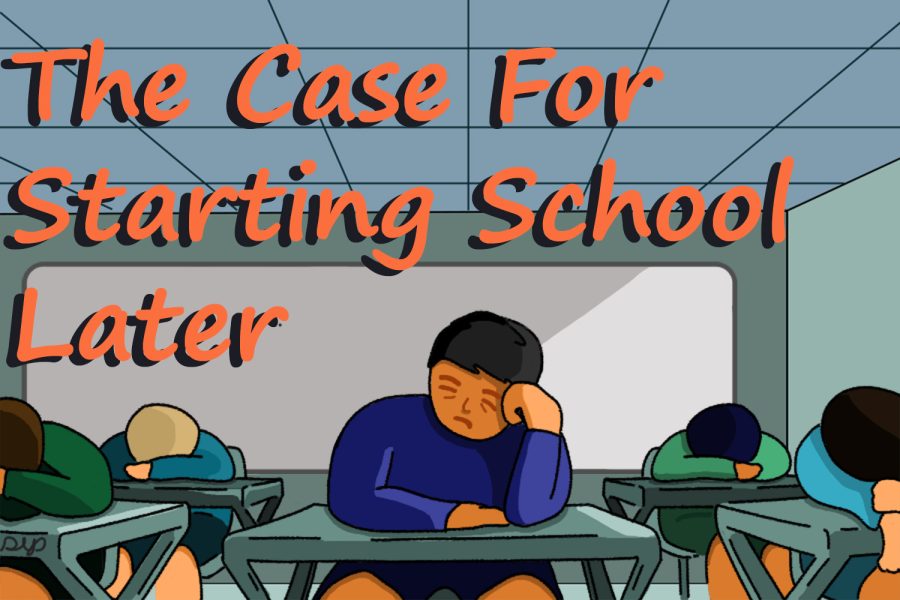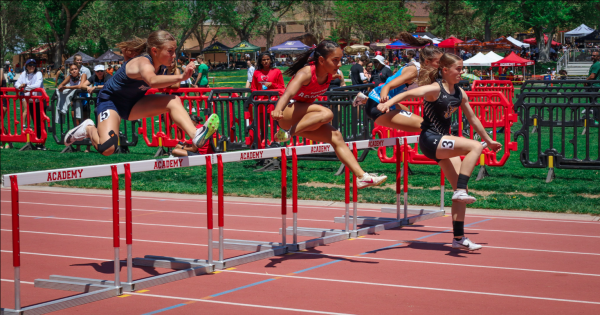School Should Start Later
It’s better for kids; we should do it!
Starting school earlier would maximize students’ potential for success.
If you’re a teenager, or know one, then you know how zombie-like they are in the morning. And if you’ve been to school, then you know that it consists of high-level thinking early in the morning. In light of this never-ending struggle, I propose that we move Albuquerque Academy’s existing schedule back an hour, so we start at 9:15 a.m. and go until 4:30 p.m.
First of all, I would like to establish that this argument does not come from a place of laziness, as would be easy to assume. In fact, I want to be more productive. A later start will foster productivity in teenagers. Having school start later is not about sleeping in, but about understanding and respecting the teenage circadian rhythm. I feel less prepared for my morning classes because I am groggy and haven’t really woken up yet. I learn less, and in relaxed classes like Yoga, I almost fall asleep.
Many studies conducted over the past few years have scientifically proven that the biological teenage sleep and cognition cycle operates on timing that is incompatible with early starts, which can lead to bad grades and create health problems such as obesity, depression, and drug use. According to Dr. Paul Kelley, schools should adjust their timing to create healthier teens. Many studies (like those mentioned in the above article) discovered clear health benefits for students starting at drastically later times like 10 a.m., 11 a.m., and 12 p.m. A shift this radical isn’t feasible in society right now, so I suggest the more achievable 9:15 a.m. The student body would be able to make the most of every class in a schedule that implements this small, one-hour shift. Just ask an upperclassman about their sleep schedule, and you will realize the importance of this change.
The Academy, which is trying to prioritize student experience and mental health, is ready for this next step. The administration has always been shifting the schedule to meet our school’s needs: we used to start later, then we started at 8, and now we have been bumped back fifteen minutes. Now is the time to adjust because our schedule has yet to be solidified after online school, and in the wake of the pandemic, society as a whole is experiencing countless changes. While there is some controversy surrounding the new practice of having each class every other day, I love the lengthened blocks and lighter homework load.
Still, it is not that simple. Even high school operates as a daycare of sorts, where parents drop off their kids early so they can make it to work on time. In moving the schedule back, I also propose that school stays open as early in the morning as it is now, with some faculty members (who, as adults, have a circadian rhythm that is more compatible with early rising) present on campus. There is nothing stopping people from dropping their kids off early if that is what they need to do, but those students aren’t required to be completely awake for learning until later in the day. The number of people working at home or on flexible schedules is ever increasing because of pandemic changes to the workplace, which makes dropping kids off less of an early-morning necessity. In this modern world, the prospect of driverless transportation is becoming more of a reality. While not immediate, self-driving cars, shuttles, and buses (which are already free to ride in Albuquerque with the Zero Fares Program) will play a role in how (and when) students get to school and can provide more flexibility in parent schedules. In any case, many upper-schoolers have their own vehicles and can transport themselves at any time.
The issue of having less time left in the afternoon for homework and extracurriculars is an important one, but I say that teenagers will be staying up late anyway, so we might as well match their work time with when they would rather be awake. I’ll be more willing to push myself or finish homework in the morning if I’m sleeping well. Furthermore, sports and dedicated athletes could plan to practice before school, even giving kids who are dropped off early something to do before classes. Coordination with NMAA to plan games and tournaments won’t be as smooth because other schools have schedules with earlier starts, but student-athletes miss classes because of events normally. We should not let this obstacle get in the way of improvements that will significantly improve students’ overall well-being. In addition, the Academy could inspire other schools to make a change. This time crunch might pave the way for other student-minded reforms like a lighter homework load, or foster better time management.
It is about time that the Academy schedule reflects the needs and limitations of the population it serves. A one-hour shift in our current schedule is a crucial step in that direction.












